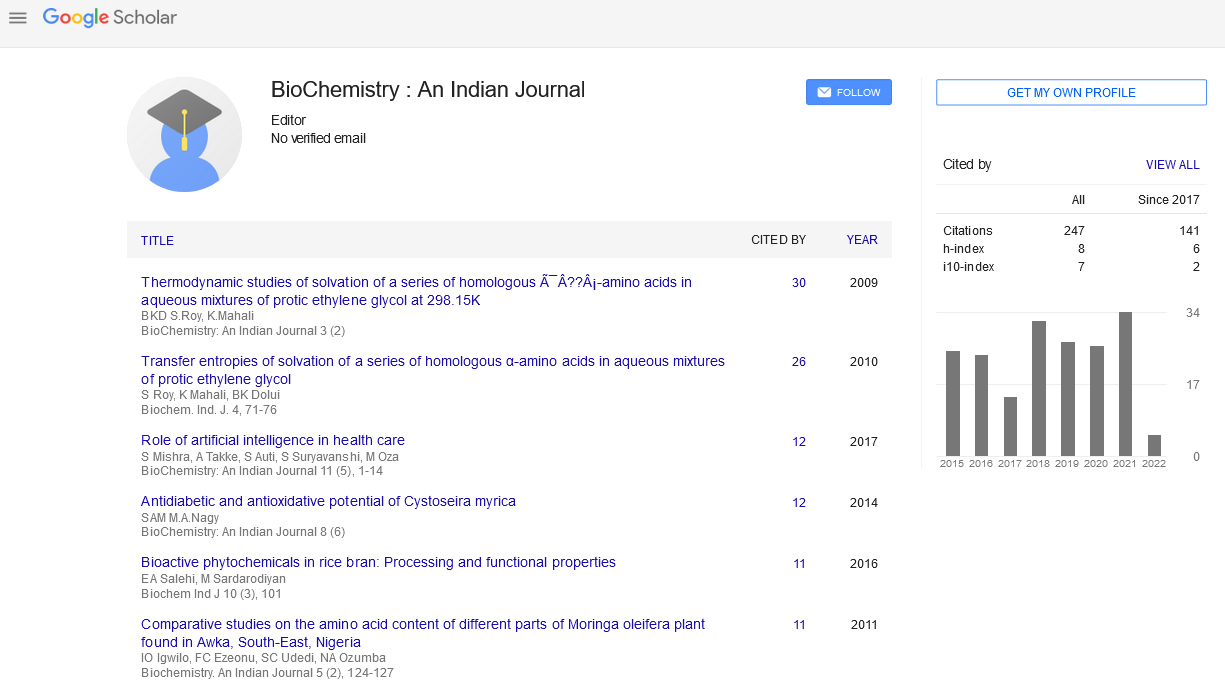Abstract
Therapeutic efficacy of water grape seed extract against leadinduced hepatotoxicity in rats
Author(s): Maha Moustafa, Omayma M.HassaninLead toxicity is a worldwide health problemdue to continuous exposure of to lead in the environment especially workers in industries The study was planned to evaluate the efficacy of water grape seed extract (WGSE) in preventing lead induced oxidative stress in liver tissue of rats. 75 male Wistar ratswere randomly divided into 5 groups:Group (1) control group in which ratswere administrated distilled water orally for 6 weeks. In group (2) ratswere given lead acetate (0.2%) in drinking water for 6 weeks. In groups (3, 4 and 5), ratswere given lead acetate (0.2%) in drinkingwater for 5 weeks followed by grape seed extract in a dose of 50, 100, 150mg/kg bodyweigh/ day (by oral gavage), respectively for one week. Lead acetate treatment caused hepatic injury as evident fromincreased activities of plasma alanine aminotransferase (ALT), aspartate aminotransferase (AST) and alkaline phosphatase (ALP), depleted hepatic reduced glutathione (GSH) and elevated hepatic malondialdhyde (MDA) concentration. Lead-induced oxidative stress in liver was evident fromincreased levels of lipid peroxidation and reduced level of GSH. The decreased activity of glutathione peroxidase (GPx) indicates possible accumulation of ROS. The changes in AST and GPx activities andMDAconcentrationwere found to bemitigated when the rats were treated with WGSE. Also, WGSE treatment of lead acetate-exposed rats was found to enhance superoxide dismutase (SOD) activity. Results indicate that WGSE has the potential to ameliorate lead-induced hepatic injury due to oxidative stress in rats. Grapesmay exert its protective actions against lead-induced hepatotoxicity in rats possibly through its antioxidant mechanisms and may have future therapeutic relevance.

